The Goodness of Europe and the Evil of this World
A striking feature of our times is that we are confronted with two radically opposed assessments of the spiritual state of contemporary Europe. On one hand, the current era is deemed the best era in the history of the continent so far. Integrated by the inception and constant development of the Union, Europe has achieved the best form of its political existence. Human rights, peace, freedom, tolerance, regional economic cohesion, economic development and the overcoming of nationalism are the key goals that Europe has been successfully pursuing. European states are collectively working to develop economically in solidarity. In its own view, the Union is also a pioneer in saving the planet from global warming, but its fight against cruelty concerns not only people but all living beings. The Union is ready to help those in need and to set global standards. Taking progressive steps towards the future, it also teaches a critical attitude towards the past. More groups of the 'excluded' and disadvantaged are gaining social recognition. Even the language is changing, so as not to hurt those who have hitherto been persecuted, despised, condemned or mistreated. Such a 'Europe' has become a civilisational and ideal model for other parts of the world, as evidenced by the influx of immigrants.
The proponents of this diagnosis do not deny that there still are unresolved and that crises are emerging. But they strongly credit these challenges to the fact that the integration is not yet completed, that the selfish interests of individual states still prevail and that, to make matters worse, the demons of the past – nationalism, populism and even fascism – reappear from time to time. These challenges are also the results of a possibility of regression and violation of law in some states and the opposition from the outside. The non-European world, the non-EU world, is resistant to Europe's policies and measures and does not want to follow in its footsteps, neither in climate policy nor in the precept of secularisation and separation of state and religion, nor in moral ideals such as the equality of 'sexual minorities'. For its economic and political interests, 'Europe', both the European Union (EU) institutions and the Member States, is forced to turn a blind eye to deviations from its values and ideals, to give way to the power of others. Optimists, however, are convinced that the world will sooner or later follow a similar path to that of the Union. And although it is still not, despite the actions of the European Commission and the successive resolutions passed by the European Parliament, there is hope that this is only temporary resistance, a temporary deviation, regression or lagging behind in other parts of the world in relation to Europe.
Russia and China were also expected to follow the direction set by the Union as part of the initial plan. However, contrary to the hopes, Russia has started another war right on the EU border at too large a scale to ignore this time, the war that is being fought in front of the world's eyes likewise, optimism about China also proved premature. Today, therefore, hopes have dropped considerably, but the conviction that the world will live up to the values advocated by the European Union remains unwavered. The difficulties only indicate that there is a need for 'more Europe', that is, even more joint action. Therefore, the EU cannot tolerate deviation among its members, and, consequently, a tough policy is needed towards Poland and Hungary, that blatantly contradict this historicism with their policies and the ideological orientation of their governments. This is why the Union, while recognising freedom and tolerance as its core values, cannot allow those who reject this perspective of history and anthropology to gain too much influence in the public sphere, especially in politics.
According to the second diagnosis, the opposite is deemed true: we are living in an epoch of profound threat and crisis, even collapse, decadence and the suicide of Europe. Such a thesis has been or is being propounded by theorists like Roger Scruton, Michel Onfray, Michel Houellebecq, David Engels, Bronisław Wildstein, Ryszard Legutko, among others. These authors have also strong empirical arguments for their theses – the disintegration of communities, the relativisation of norms or even nihilism, the breakdown of the family, the loss of national community, the growing threat to freedom of speech and academic freedom, the culture of nullification, the brutalisation of language, aggression, hate campaigns, biological engineering, the spread of perversion, the legalisation of abortion and euthanasia, child trafficking, etc.
How are such completely contradictory diagnoses possible? Which of these descriptions is true? Neither side makes arguments without conclusive evidence. Is an optimistic assessment of the modern world completely wrong? Well, if we do not idealise the past, it is easy to see many positives of our times. Even during such a relatively peaceful period as the turn of the 20th century, life was hard in a country as developed and prosperous as France.[1] The counter-arguments against the pessimists can be that apocalyptic predictions are nothing new and that they have not really come true so far; on the contrary, we live a better and easier life than before.
We also know that complaining about decadence is nothing new. The mood of decadence prevailed not just at the end of the nineteenth century when the notion became relatively fashionable but has been observed in many instances in history:
The notion of decadence (from the Latin cadere, to fall) is not peculiar to the turn of the nineteenth century with which it is often associated. It was not unknown to Plato, let alone to Gibbon, and it was seen as a present reality, at least by a few, well before the French Revolution. In April 1770, Voltaire addressed it in terms that would continue (to) be used through the next two centuries. It came, wrote La Harpe, ‘through the ease with which we do things and the sloth that prevents our doing them well, through a surfeit of beauty and a taste for the bizarre. Do not expect to re(-)establish good taste. We are every way in time of the most horrible decadence.’ Facility, laziness, satiety, the disappearance of good taste, a leaning toward the bizarre: a fat boy's rebellion, expressed largely in terms of taste and manners appropriate to a tiny educated and leisured class, demonstrates ‘the most horrible decadence.[2]
Even if we admit that the apocalyptic predictions turned out to be true because the 20th century brought around terrible events, they did not necessarily result from decadence, but from a surge of vitality, as can be seen from the example of Hans Castorp, the hero of Thomas Mann's The Magic Mountain, and not necessarily from nihilism but from the absolutisation of certain values. However, be that as it may, Western Europe subsequently learned the right lessons, and since 1989, an optimistic philosophy of history has become a valid model for understanding the world.
The pessimists, on the other hand, counter that the technical possibilities have never been so developed and that only now some of the black visions of the past can be turned into reality. Moreover, they have the support of their adversaries on certain points, because there is no shortage of black visions among the enthusiasts of the Union either. Alongside symptoms of progress such as multiracialism, abortion on demand or the weakening of Christianity, they also see deadly dangers. In these circles, too, there are predictions that are not only pessimistic but even apocalyptic – the planet is almost beyond saving. They also see dark, evil forces such as nationalism, populism, fascism, the violation of democracy and the possibility of widespread surveillance gaining strength. But they pin their hopes for rescue precisely on the European Union, on deepening integration and on Germany as a moral superpower, also the biggest emitter of greenhouse gases in Europe.
So, what to make of these two assessments? Well, it can be argued that it is just a matter of two different assessments of facts based on two opposing value systems and what is progress for some is destruction for others. Yet exceptionally, these two radically different positions can lead to the same assessment as was seen during the pandemic when the extreme right met the extreme left in protests against the vaccine action.
However, the issue is even more complicated: could these two visions be just different sides of the same coin? Perhaps, it is this idea of good, this drive to combat all evil, as proclaimed by optimistic Euro-enthusiasts, this ruthless enactment of values that are also shared in principle by pessimistic Euro-realists[3] that leads to all those phenomena of which the pessimists write. How is this possible? Let us take a closer look at this universalist humanism that has become the creed of ‘Europe’.
Contrary to many opinions, I believe that the current spiritual state of Europe, or the West more broadly, is not the result of nihilism, cynicism or a decline in morality but of hyper morality; it is not a break from Europe's Christian past but a transformation of Christianity and the European culture saturated with it. It is not a new or surprising thesis that the European culture and society resecularised Christianity. It was developed, for example, by Jürgen Habermas, who highlighted in many of his works that the intuitions expressed in religious tradition are translated into the language of philosophy. Religious content is transformed into moral rules established in dialogue, the sacred is 'linguised'. Habermas repeated this thesis once again in his last comprehensive book, Auch eine Geschichte der Philosophie. The story he tells of the development of European philosophy leads in successive and logical stages from Greek thought to the medieval synthesis of Revelation and philosophy, and then to Hume, Kant, Hegel, Peirce – to a post-metaphysical, decentralised and at the same time historicised reason realised in human processes of communication. If crimes are committed on this path in the name of progress and reason, such as the crimes of the French Revolution or communism, they cannot be claimed to be the result of modernity as argued by the postmodernists or of modern rationality or reason in its modern form but of the one-sidedness of the process of rationalisation. Moral intuitions expressed in religious form are transformed into secular ethics of reason. And yet, on the last page, Habermas speaks of the continuing need for liturgy and prayer in the religious community, because not everything is immanent and not everything can be reduced to a communicative community agreeing on common norms.[4]
Habermas's position is a continuation of the former 'Kulturprotestantismus', a cultural Protestantism, whose aim was to align the Christian religion with progress and enlightenment and the development of culture and society. As per the proposition, religion becomes a factor of progress and an aid to ethical and cultural development. Thus, not only the philosophy of German Idealism but also of German Protestant theology, e.g., that of Adolf von Harnack, contributes to this transformation of Christianity.
If it is considered that this ethic of rules should nevertheless be framed by secular rituals and supplemented by sentiments and a collective spirit, we get something like Saint Simon's 'New Christianity' or August Comte's religion of humanity. As Saint Simon announced,
I shall show that this doctrine is the only social doctrine which can be suitable for Europeans in the present state of their enlightenment and civilisation. I shall prove that the adoption of this doctrine offers the best and most peaceful means of remedying the enormous disadvantages which have resulted from the invasion of spiritual power by physical force, which took place in the fifteenth century, and of putting an end to this invasion by reorganising spiritual power on a new basis, and by giving it sufficient strength to put a brake on the unlimited claims of temporal power.[5]
Today, of course, the idea of universal brotherhood and interpersonal church, can already do without any reference to Christianity. This "new Christianity", the Christianity without God, is a perversion of conventional Christianity. As shown by Ivan Illich and Charles Taylor, who referred to the former[6], and more recently by Pierre Manent[7], mercy in Christian meaning is fundamentally different from mercy as humanitarian action on the basis of contemporary universalistic humanism. Illich argued that this new understanding of mercy is a distortion of Christianity and is due to the institutionalisation of Christianity, that is, the transformation of the Gospel into laws and rules.
The personal freedom to choose who will be my other has been transformed into the use of power and money to provide a service. This not only deprives the idea of the neighbour of the quality of freedom implied in the story of the Samaritan. It also creates an impersonal view of how a good society ought to work. It creates needs, so-called, for service commodities, needs which, can never be satisfied — is there enough health yet, enough education? — and therefore a type of suffering completely unknown outside of Western culture with its roots in Christianity.[8]
As Taylor writes, there is a fetishization of rules and norms.[9] By contrast, mercy as understood in Christianity is an act of the heart that is inexplicable from a human point of view, a feeling illuminated by faith, and not a moral rule, much less a law. Mercy cannot be ordered by law because then it ceases to be mercy. Nor can forgiveness be considered a moral obligation. If forgiveness were an obligation, it would cease to be forgiveness, since everything would consist of forgiveness. Moreover, since everything is forgivable, the line between deliberately doing wrong and error or negligence becomes blurred.
In a post-Kantian world, everything must be generalised, encapsulated in a general formula, and no longer just moral but legal and institutional. Germans excel in this, and their way of understanding ethics, even more since Kaisereich secularised 'Kulturprotestantismus' has been inscribed in the ideology of Europeanism: we're dealing here with the institutionalization, or normalization, of something which to ordinary human reasoning is absurd. That God could be (a) man can be explained only by love. Logically, it's a contradiction.[10]
This institutionalisation neglects the free choice of the individual. But more than that, an act of mercy cannot be a collective choice. As a nation, we cannot have a choice in this regard either because being a collective Samaritan is mandated by international law. Human rights, although their enforcement is as much a political act as the enforcement of any other law, are elevated above any political decision. They are no longer a matter of political will, the result of our form of political life, but an imposed institutionalised obligation. And in the European Union, there are sanctions for not complying with it.
It is hard not to agree with Illich that such a decreeing of neighbourly love and mercy is a distortion of the message of the New Testament:
I have again and again tried to show you that our present world can finally be understood only as a perversion of the New Testament. So, I do not believe, that this is a postChristian world. That would be consoling. I believe, though I'm hesitant about the term, itss an apocalyptic world.[11]
He does not hesitate to call our times – this best of all times – the era of an Antichrist deluding people with his Christ-likeness – ‘the Anti-Christ, which looks, in so many aspects, just like Christ, and which preaches universal responsibility, global perception, humble acceptance of teaching instead of finding out for oneself, and guidance through institutions.’[12] This new age is the result of a series of transformations of Christianity; it is the mystery of evil into which the good is turned: ‘The Anti-Christ, letss say, the mysterium iniquitatis, is the conglomerate of a series of perversions by which we try to give security survival ability, and independence from individual persons to the new possibilities that were opened through the Gospel by institutionalizing them.’[13]
He speaks of an evil of a new kind: ‘I consider this evil to be the result of an attempt to use power, organisation, management, manipulation, and the law to ensure the social presence of something which, by its very nature, cannot be anything else but free choice of individuals who have accepted the invitation to see in everybody whom they choose the face of Christ. That's the reason why I speak about corruption, or perversion."[14] The activists of the social movements, the Christians without a god, full of ideological and moral fervour, imposing their rules on others and seeking to institutionalise them, while doing good, create this evil of a new kind.
Ivan Illich was a radical critic of institutions and achieved worldwide fame in the 1970s as a critic of the institution of the school. However, one does not have to share his radicalism to see that his critique touches the core of Europe's current spiritual state and its consequences. Since mercy has become a precept of the law, it is no wonder that Europe is becoming vulnerable to the evils of the world, the neo-imperialist tendencies of Russia and China and the influx of immigrants. Jean Raspail, in his great novel The Camp of the Saints, may not have been right in predicting a 'great replacement'. However, he was undoubtedly right in pointing out that pity and compassion are the reasons for Europe's weakness in dealing with the problem of mass immigration. Stefan Zweig, in The Impatience of the Heart, wrote insightfully about what ill-advised pity and excessive and ill-advised compassion can lead to. The European Parliament recently decided to honour him by naming one of its halls after him. Had the MEPs really been familiar with his work, not only The Impatience of the Heart but also his biography of Marie Antoinette, a victim of progress, they would perhaps have hesitated in taking this decision, as most of them regard the French Revolution as an absolutely positive event and mercy as Europe's duty to the world.
The negation of the act of free will, of which Illich writes, turns it into an institutional norm or rule. Yet it also leads to an institutional negation of the traditional social norms and rules that bind the particular community or society together, that Illich fails to see. For the institutionalisation of mercy, the negation of a human act of mercy towards another human being, that is inexplicable in the light of rules and norms, necessarily commends that differences between people must be overlooked. We should not ascribe different values to cultures or ways of life, make distinctions between them, evaluate people and urge them to pursue higher goals, for every choice and goal should be respected, everyone is our neighbour, ‘no man is illegitimate’ and love is one – ‘one love’. It is our duty to tend to suffering, to accept every difference and to respect every identity. We must patiently endure the abomination of vulgar public displays of sexuality, bravely pretend not to see the ugliness of men allegedly transformed into women, and acknowledge gender declarations in defiance of biological facts because then we show our humanism or our Christian faith. We must defy our senses and deny the differences we see between the young, strong men who have come to Europe in search of a better life and the women with children who are fleeing the war in Ukraine.
No one and nothing can be condemned ─ except those who question this command of mercy ─ especially not God. And priests cannot preach such a thing, for contemporary Christianity, unfortunately including the Catholic Church, has also become an ally of this tendency. A liberal Christianity that has adapted itself to a world that institutionalises the command to love one's neighbour has become dominant. In this world, there is no room for internal contradictions, drama, tragedy, the absurdity of faith, the dialectic of guilt and goodness, an excess of pity, not to mention sin – sin is an injury, and not man's guilt, for which he should suffer punishment, including eternal punishment, that only divine mercy can save him from. Today, we will not hear in the Church about hell-fire or eternal damnation but only about love and salvation, although on request but in any case, without great hardship. Hell is said to be empty, and God is only known to shower love and not be a judge of the living and the dead. There are also no evil spirits roaming the world, and dark, personal powers of evil do not exist.[15] The Catholic faith associated with a deep sense of evil, sin, the fall of man and the presence of Satan in the world, as understood by Baudelaire, Bernanos or Mauriac, seems an almost exotic religious belief today.
The radical institutionalisation of mercy is thus a great mechanism of egalitarisation and uniformity. It is no wonder that there is a regression of civilisation and that progressive art becomes a constant transgression since any differentiating norm can be a source of suffering. Those negative phenomena of modern times that the pessimists speak of are the result of this mechanism.
‘Europe’ is therefore in its mind, an empire of good, ‘detranscendentalised’, secularised, but striving for universal validity, especially in the German core of Europe because on its periphery, there is still a struggle between that good and what passes for evil. This 'Europe' is always surprised by the world's diversion from its ideas, by every war, every act of violence and persecution and every dissent. It cannot cope with the discrepancy between its own ideals and reality, including intra-European and intra-EU reality. And the question is whether, in the future, it will not be tempted to eliminate this discrepancy by force.
* This article was originally published in the book entitled The Spiritual State of Europe, Ośrodek Myśli Politycznej (Centre for Political Thought), Kraków 2022.
[1] E. J. Weber, France, Fin de Siècle, Cambridge, Mass., London, 1986, chap. 3.
[2] Ibidem, p. 14.
[3] Both speak of freedom, democracy, human dignity, equality for women and men, condemn the persecution of minorities, including sexual minorities, want to protect the environment and so on.
[4] J. Habermas, Auch eine Geschichte der Philosophie, Frankfurt am Main 2019, vol. 2, p. 807.
[5] C.-H. de Saint-Simon, Nouveau christianisme (French Edition). Kindle Edition.
[6] Ch. Taylor, A Secular Age, Cambridge Mass., London, 2007, p. 737-745.
[7] P. Manent, Qui est le ‘bon Samaritain’?, Commentaire 2020/4 (Numéro 172), p. 809, 812. Manent also developed his arguments in an interview with Alain Finkelkraut, [online:] <https://www.radiofrance.fr/franceculture/podcasts/repliques/l a-parabole-du-bon-samaritain-8469103>
[8] I. Illich, The Rivers North of the Future. The Testament of Ivan Illich as told to David Cayley, Toronto 2005, p. 56.
[9] Ch. Taylor, op. cit., p. 742.
[10] I. Illich, op. cit., p. 57.
[11] Ibidem, p. 169.
[12] Ibidem, p. 169.
[13] Ibidem, p. 61.
[14] Ibidem, p. 56.
[15] See the comments on this in Ch. Taylor, op. cit., p. 741.
Read also
Seen From Warsaw, Seen From Brussels: The Final Report
What does not understand Poland's situation are those – or they simply do not care about Poland – who think that there is no problem at all, that the European Union always acts in accordance with our interests and values, and that it is enough to implement its regulations and directives.



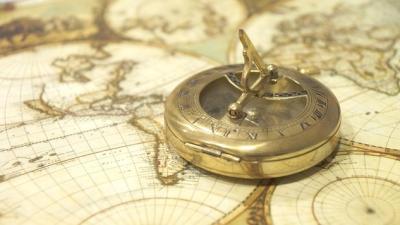

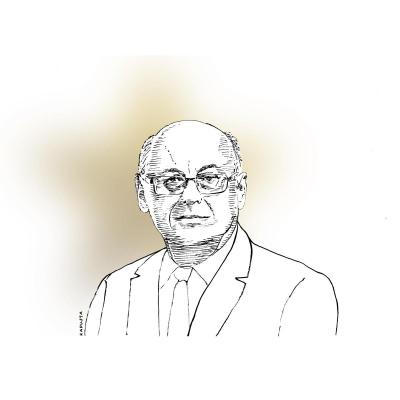
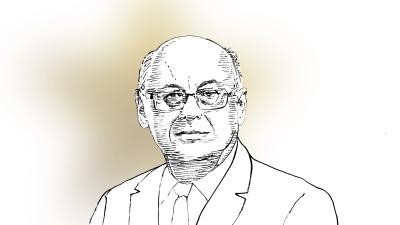

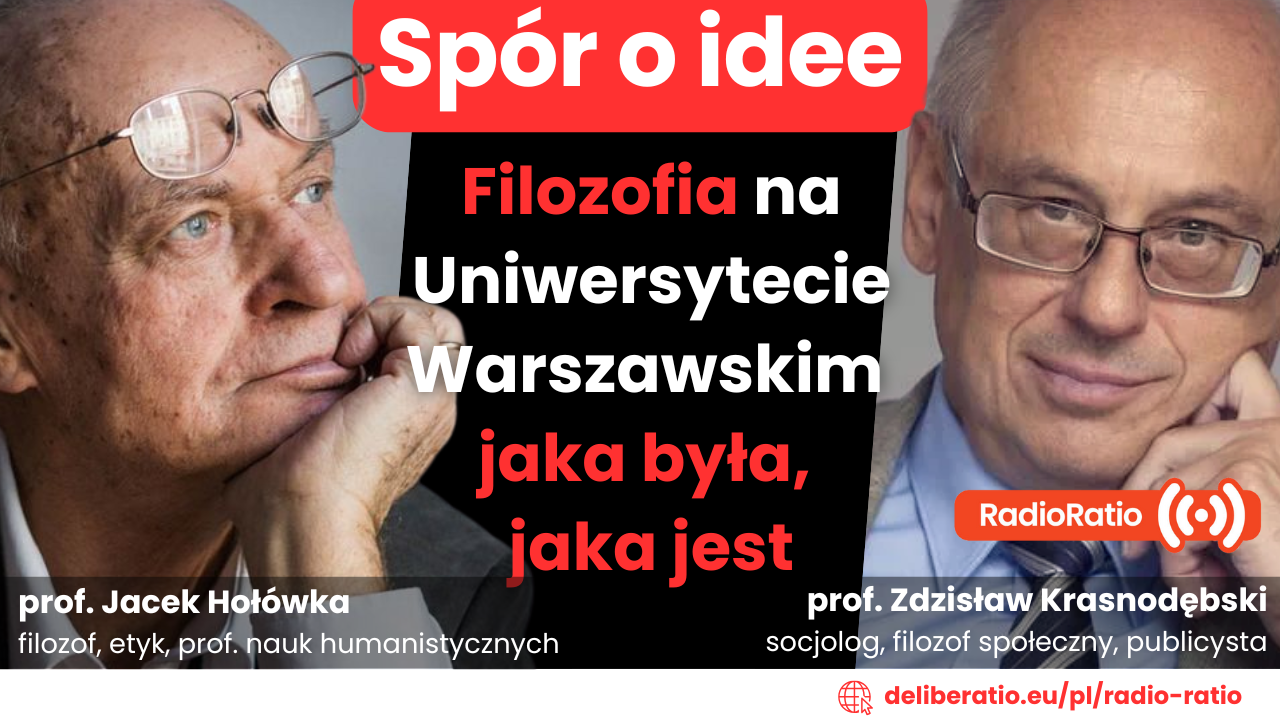
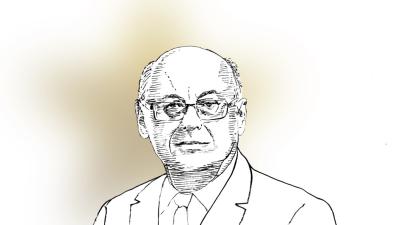

Comments (0)